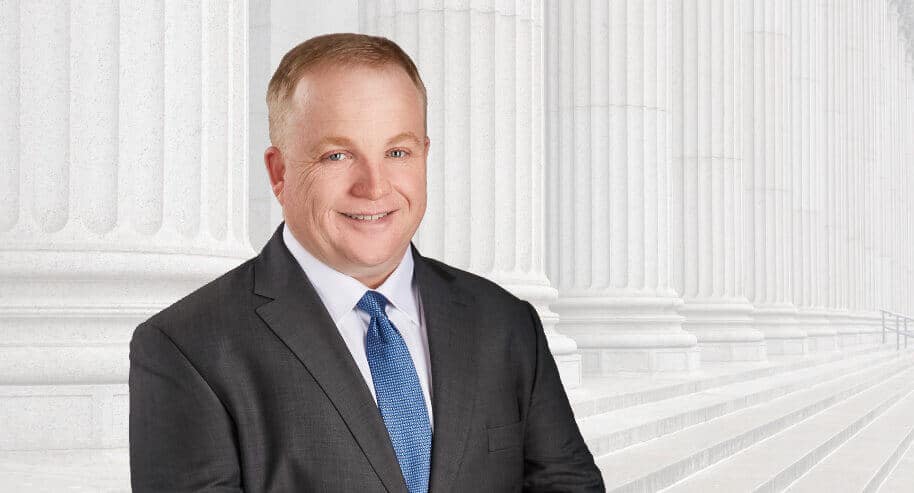
Guardianship issues arise in various circumstances when someone needs to act on behalf of a child, spouse, parent, or another relative. You cannot officially step into the shoes of another person unless you have legal approval, and you can only obtain such approval by being appointed as a guardian.
There are situations where it’s necessary to get court approval when your loved one cannot take care of medical issues, living accommodations, and financial matters on their own. When and if that time comes in Johnston County, NC, you’ll need solid, dedicated representation from an experienced Smithfield guardianship lawyer.
There are numerous interests to protect in a guardianship case, from your own to the person who needs help. It’s critical to work with guardianship lawyers you can trust. Attorney Jonathan Breeden has years of experience representing clients in guardianship cases, so you know you’re putting your family’s future in good hands.
Call a Smithfield family attorney at Breeden Law Office at (919) 300-7290, or reach out online to set up a consultation today.
Guardianship may become an issue for you and your loved ones under a variety of circumstances, and you can streamline the process by working with an attorney for legal guardianship. However, some basic information should give you an idea of what you are dealing with.
Guardianship is a legal process where you request that a court appoint you to act for a person who is unable to handle life’s necessities for different reasons. The state’s guardianship laws define the parties in a guardianship case:
Two primary scenarios may require you or someone else to request guardianship of a ward:
Parents are generally considered the natural legal guardians of their children. However, when a minor’s parents are unable or unfit to care for them, a legal guardian is required. A guardianship gives someone the same legal authority and responsibilities of a parent. Guardianship of a child is established by filing a petition in the county court where the child resides and securing a court order.
Some examples where guardianship of a child may be necessary include:
Guardianship may be either temporary or permanent, depending on the circumstances and need. For example, a permanent guardianship may be required if the parents are not expected to be able to care for a child in the foreseeable future or if they have passed away. If you need assistance through this complex process, contact a child guardianship attorney at Breeden Law Firm.
Depending on the needs of the ward, there are multiple roles a guardian can play, including:
A guardian may be appointed to handle the ward’s comfort, well-being, medical care living arrangements, educational needs, and other matters relating to personal care. A personal guardian intends to provide support on these aspects of life, while also promoting self-reliance and independence.
The ward’s estate includes all ownership interests in personal property and real estate. A North Carolina court appoints a guardian of the estate when the ward is unable to make financial decisions regarding these assets.
While one individual may be appointed by a court to act as general guardian of the person and estate, there may be reasons to separate these positions. For instance, if the ward’s estate has considerable value, it doesn’t serve the best interests of the ward to have a person without specialized financial training manage it.
In such a case, a financial institution with proper qualifications may be appointed as guardian to administer complicated investments. Of course, that bank would not be an appropriate personal guardian to take on care and support of the ward.
On the other hand, a person or entity that provides specialized health care may be necessary to act as a personal guardian if the ward has unique medical needs. If it’s in the ward’s best interests that have a medical professional or assisted living center act as their personal guardian, a court may approve such an individual or professional to take on that role.
A Smithfield guardianship attorney can provide more details on how personal and estate guardianships work, and whether it’s necessary to address multiple parties to take on different roles. Even though it may be convenient for one person to request appointment as a general guardian, the court will separate the positions into personal and estate guardianship to comply with the ward’s best interests.
Guardianship laws cover the duties of a personal and estate guardian. If you’re granted guardianship of a ward, your decisions regarding health care and financial issues must be what a reasonable person, faced with the same set of circumstances, would make.
Typical duties of a personal guardian may include:
As estate guardian, you are responsible for managing assets included in the ward’s estate, some of which will be required to support the duties of the personal guardian. Because many guardianships involve Social Security Disability Insurance, Supplementary Security Income, and other benefits, you must be prepared to assume the required duties.
You can trust a Smithfield guardianship attorney to counsel you, answer questions, and provide other assistance to help you fulfill your role as guardian. There can be serious consequences for neglect or willful misconduct, so you may need guidance to perform your duties.
Whether you’re thinking about requesting guardianship or want to know more about the proceedings if someone else has filed a petition, you should understand the basic details about the process. Your lawyer will explain the legal details, but some background information is helpful.
Before a judge in Johnston County Court considers appointing a legal guardian, it’s necessary to establish that the potential ward is incapable of making responsible decisions regarding personal care, financial matters, or both.
The incompetency hearing is similar to a trial, where parties present evidence regarding the alleged ward’s capacities. Family members, health care providers, and caretakers may provide testimony. Parties may also present medical records and other documentation regarding incompetency.
For guardianship of a minor, there is no need to produce evidence regarding the child’s incompetence. Under the law, an unemancipated minor cannot manage medical, legal, and financial matters on their own.
If the court finds that the ward cannot make decisions regarding the management of financial and personal issues, a judge must still decide on all petitions requesting appointment as guardian. When you seek guardianship, it’s important to retain an attorney to assist you with developing a legal strategy. You’ll need to gather evidence, consult with witnesses, and work out arguments to support your position.
In other situations, you may want to contest the petition of another person who wants to act as a guardian. For the same reasons, you should work with an experienced advocate to represent your interests.
The court may appoint a guardian ad litem in connection with a petition for guardianship and incompetency hearings. The ward has certain rights, and the role of a guardian ad litem is to protect them.
Judges have busy dockets and cannot spend enough time one-on-one with the ward to assess their best interests. The guardian ad litem takes on this responsibility by conducting interviews and evaluating the ward’s environment. The guardian ad litem then submits a written report to the court.
Guardianship issues may be relatively straightforward, especially if the ward is clearly incapacitated and just one person petitions for guardianship. However, complications may arise when:
Throughout the process, including incapacity hearings and proceedings related to the appointment of a guardian, it’s essential to have a Smithfield guardianship attorney advocate on your behalf.
Guardianship proceedings can be time-consuming, costly, and may create disputes that cause tension within families.
There are legal strategies to avoid a lengthy court process, like establishing powers of attorney. Planning ahead allows you to state your intentions regarding health care, personal affairs, and your assets. Lawyers for legal guardianship can advise you on:
The future is uncertain, but through powers of attorney, you maintain some control over your circumstances. You can trust a guardianship lawyer to explain these arrangements and help you execute them in accordance with state law.
You may care for a loved out of a sense of personal responsibility, but you also have legal obligations under the state’s guardianship laws. There are complicated county court proceedings to get through before managing someone’s personal and financial decisions.
Plus, you face challenges and record-keeping obligations if you are approved as a personal or estate guardian. Your legal duties can be technical in nature, and there are consequences for neglecting your obligations as a guardian.
The best way to protect yourself and ensure the proper systems are in place to care for someone who needs help is to work with an experienced lawyer for legal guardianship. A skilled guardianship attorney can facilitate a smooth process, articulate someone’s need for a guardian in court, and provide all the necessary documentation and evidence.

For more information on how a Smithfield guardianship attorney can help, contact Jonathan Breeden today. Attorney Breeden has been assisting clients with guardianship issues for years, so he has the experience and knowledge to guide you and your family through this challenging time.
Contact Breeden Law Office at (919) 300-7290 to set up an initial evaluation of your case.
Call Breeden Law Office today:
Call (919) 300-7290